#1 Bass Duo: An Interview with Christian McBride and Edgar Meyer
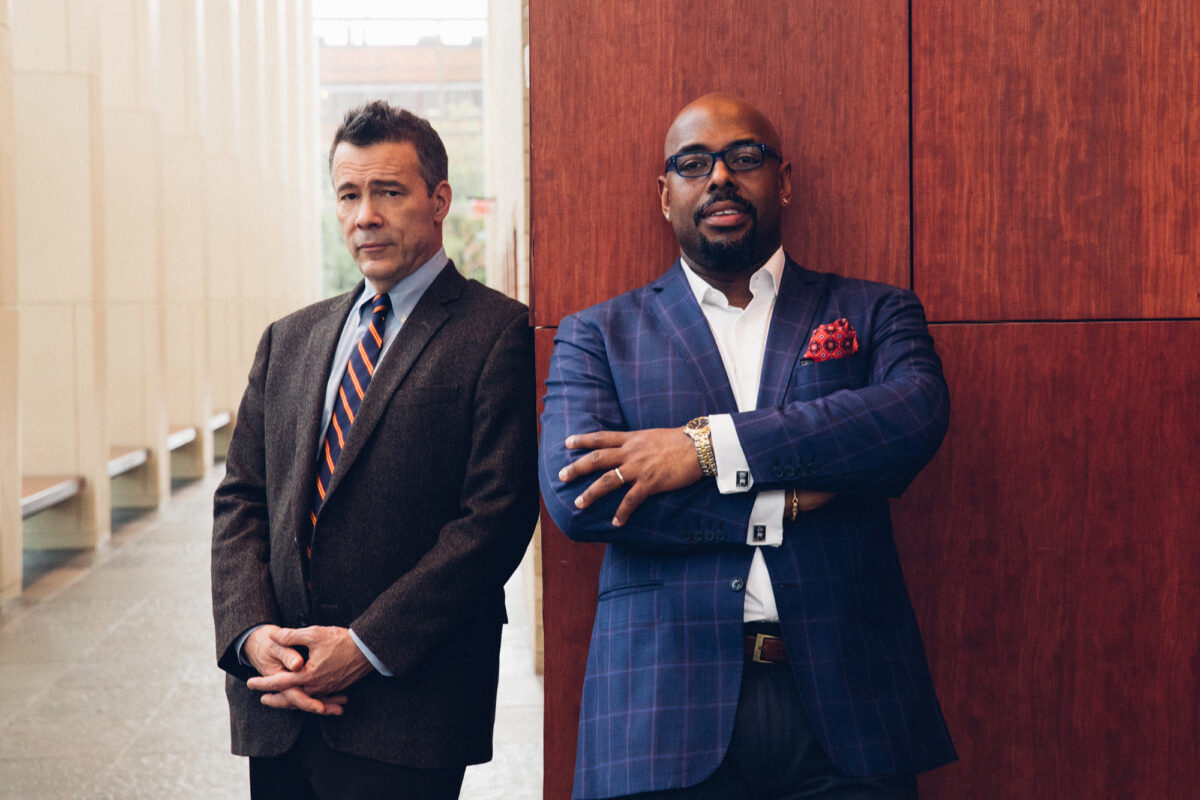
When Christian McBride and Edgar Meyer announced they were teaming up for a duo tour nearly a decade ago, it seemed almost too good to be true. The bass titans are two of the greatest to ever play the double bass with multiple Grammys to their names, but their respective styles seem so different from the outside. McBride is a jazz, funk, and R&B master while Meyer is renowned for his impeccable classical and bluegrass playing.
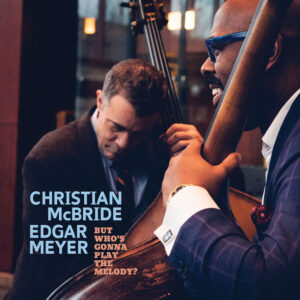 After ten years of playing concerts on and off, the duo have finally released an album. But Who’s Gonna Play the Melody? takes its title from a friendly jest by saxophonist Joshua Redman, proving that even the cream of the crop deals with bass jokes. They just have the power to turn the joke around on everyone else. McBride and Meyer trade off melodies, solos, bass lines, and comping throughout the 15 tracks comprised of originals, American Songbook standards, and bluegrass classics.
After ten years of playing concerts on and off, the duo have finally released an album. But Who’s Gonna Play the Melody? takes its title from a friendly jest by saxophonist Joshua Redman, proving that even the cream of the crop deals with bass jokes. They just have the power to turn the joke around on everyone else. McBride and Meyer trade off melodies, solos, bass lines, and comping throughout the 15 tracks comprised of originals, American Songbook standards, and bluegrass classics.
“Edgar and I come from two different places,” McBride explained in a press release. “I come from the jazz and R&B worlds with a little bit of classical, and he comes from the bluegrass and classical worlds with a little bit of jazz. With this album we’re meeting each other in uncharted territory.”
The music is certainly virtuosic, but it’s more than that. The chemistry between the two players is as good as any two musicians regardless of instrument. Their feel is the kind that’s only attained by skill, listening, and trust. We were lucky enough to catch McBride and Meyer together via Zoom just days after their performance at the Big Ears Festival in Knoxville, Tennessee and ater talking with the duo, it’s clear that the music is also inspired partly by their great friendship.
But Who’s Gonna Play the Melody? is out now on CD and as a digital download (iTunes and Amazon MP3). A special vinyl edition is being released for Record Store Day on April 20th.
I read Ray Brown hipped you to each other many years ago. Was that an actual meeting or did you just find out about each other from him?
Christian McBride: He didn’t set up a meeting specifically to tell me about Edgar, but we were hanging out and he had just done a television show with Edgar and Victor Wooten. This was just around the time I was getting to know Ray. We had lunch and spent the day together. It was a wonderful hang. Then he took me back to this video production studio and showed me what he had done with Edgar and Victor. That started my lifetime fandom of Edgar and Victor.
Edgar Meyer: My lifetime fandom of Mr. McBride was really from his early recordings. I don’t remember how we met, although you said we met at Victor’s [Bass and Nature] Camp.
CM: Right.
EM: I would show up at Christian’s gigs and try to get him to give me a lesson and he wouldn’t.
CM: [laughs] Yeah, right!
EM: That’s why we play together. It’s the only way I can get the lessons.
Christian, we know your background with Ray is pretty well documented. Edgar, did you know Ray very well besides doing that show?
EM: I saw him every year. I felt like we were pretty good friends. We would hang out and talk, but I didn’t have the kind of relationship that Christian did. I knew Ray since I was 20 or something like that. He was just very, very generous.
I told this story to Christian the other day. I was 19 or 20 years old and I told my dad, “I think I’ve about figured out how to get that sound like Ray Brown. I just need a slightly different bass, I think.” And then Ray played my bass and I found out that the bass was fine. [laughs]
CM: Yep, that’s about it.
EM: Ray was very outgoing and loved supporting younger players. It was incredible. When I was young, I was really begging my father to let me play bass like him. He finally let me and the first thing he did was put on We Get Requests by the Oscar Peterson Trio and he said, “Now, this is how you play bass.” From day one, that was the only consistent model for me. That was how you do it. That never really changed. I’ve been interested in this and that, but Ray is the only bass player who has [stayed consistent].
Most of my influences are pretty diverse. They’re from all kinds of music and they include a lot of dead people and people who sing and people who write and people who do all kinds of stuff. But it’s hardly ever a bass player in there. Ray is the main bass player in my list of influences.
You two are so different and so alike in a lot of ways in your bass playing. What you you see and admire about each other’s playing the most?
CM: I’m amazed at how when he’s playing what we identify as classical music that it’s the perfect balance between deadly accuracy in his intonation and technique, but also his emotion, his expression. I think that a lot of trained musicians might get hung up a little bit too much on technique, but on one the hand it’s very difficult to play double bass – particularly in tune at such a near-perfect percentage rate.
You hear Edgar do that, but when you hear him play bluegrass or something that’s so completely different from the symphonic music, it’s like what Ray Brown said. The phrase he used was, “Edgar’s got the grease,” which is why Ray loved him so much.
I don’t think I’ve heard a lot of musicians who don’t consistently play blues-inflected music that really have high “musical cholesterol” numbers. Edgar has high cholesterol numbers, musically speaking. [laughs] That’s just such a rare, incredible balance.
EM: The thing about Christian is you can’t really summarize him. I can’t give you a little report that says, “This is what I like about Christian.” What I like about Christian is that when he walks into the room, the music is better. When he leaves, it’s not as good. He will find a way to lift that music up.
There are obvious things like playing the bass line and creating feeling with that, but it’s just so much more than that. He’s a very broad musician and nobody played the instrument like he plays it until Christian. I didn’t imagine that somebody even could play it like that. He’s put together a way of playing the bass that’s his own and will set the standard. It’s amazing.
How comfortable were you each in playing in a bass duo setting? Was there much in the way of figuring out arrangements?
EM: It was not a situation where we had to talk a lot.
CM: By the time we started recording the album, we were a very well-oiled machine. We had done a series of concerts and tours. Our familiarity with each other was pretty high. The album was just the obvious icing on the cake.
EM: I remember the first time we played notes together. You can tell a lot in the first ten seconds you play with someone. In those first ten seconds, I could tell that I was being listened to like I’m not usually listened to.
One of the things that people don’t get with someone like Christian is that a lot of people focus on his groove and his technical prowess. What they don’t understand is that’s just not even half of what’s going on. The first thing I noticed with Christian is that it’s always the exact right volume. If I played loud, he played loud. If I played soft, he played soft.
We didn’t have to talk about anything, it would just happen. It’s the kind of sensitivity you’d expect from fragile little violinist or something. That’s something that people don’t see or understand, but that’s what makes this music viable.
You’ve released a few performance videos, one near some bamboo and one in what looks like a studio. What was the actual recording session like?
EM: The video for “Bass Duo #1” is from the recording session. In fact, it is the take for that song on the record, so that will give you a little idea. We were in a 600-seat hall at Vanderbilt University called Ingram Hall. It’s a hall that I really love. I have certain things I like acoustically. You can add reverb or whatever you want to do, but this room has a personality that I like. I love the acoustic spectrum of this room. I like how every instrument sounds in this room and I like the way they blend.
Todd Whitelock, who Christian and I have both known for a long time, was using almost a classical technique of recording but with jazz ears. He really understood Christian’s sound and my sound. It was appropriate for this pared down instrumentation to use a more spacious miking, which is much more in the classical direction. He knew how to not screw that up, too. He kept both of us sounding just like ourselves.
CM: Todd is a master. Especially with all types of acoustic music. That’s his wheelhouse.
EM: We got the first part of the record done and then the pandemic came. Then we got the second part scheduled and then Todd had some personal issues where he couldn’t travel. We delayed for another year just so we could finish it with Todd. That’s why we took so long. We liked how the first half of the album turned out, so neither one of us wanted to change where we were doing it or who we were doing it with. So we just waited until we could do it.
In recording situations, do you normally let the engineer do their thing or do you have recording setups you like?
CM: Obviously, it depends going from recording to recording. When I have my own recordings, I’m dealing with drums, sometimes percussion, acoustic piano, sometimes electric guitar or electric keyboard. The studio demands might change every small little bit, but I’d say that 95% I try not to change my setup in the studio in having it be all microphone. [I use] very little DI, depending on the recording. If it’s pop or R&B or hip-hop, yes – you might need to change the aesthetic a little bit. More often than not, I tend to stick with the same vibe in the studio.
EM: I don’t do as many recordings as Christian does, either of my own or with other people. There’s a variety of situations and sometimes I don’t have perfect control over how I’m recorded. And sometimes it’s better if I don’t. Sometimes it’s worse if I have too much control.
As Christian is alluding to, it really varies incredibly on what the music is. You’re not going to necessarily record the same way in different musical situations.
In this case, I’m not sure but I think Todd had some more scientific mics up there like they’d use for classical music like DPA’s or Schoeps or something like that. That’s 9/10s of the sound. They’re high and they’re distant. He’s complementing that with some close mics to get the other 10%, but even those aren’t that close. I believe he had a ribbon mic for the close mic.
He may have had some other mics open in the room, but I’m pretty sure he was doing about what I told you.
If there were drums around or any other instruments, he might be wanting to get closer on us. With the sparseness of this project, he was able to go further off without it sounding too distant. The nature of the music allows that.
I was really pleasantly surprised after the first sessions when I was able to go back and listen to how he recorded. I had confidence in him already, but it was exactly how I would have wanted him to do it.
What was the most difficult part of this album? You’re all at such a high level of musicianship I assume you could say “Nothing,” but what are you focusing on when you’re playing?
CM: I kind of have to say you’re right. I can’t think of too many things that are difficult other than simply wanting to sound good and make Edgar feel like he didn’t want another bass partner. [laughs]
Again, we’ve had this thing going for quite some time. We dance with each other quite well. The recording was just an organic “must-do” after years of playing together and doing concerts together.
[There’s only one] time I can remember where things [were tough] and it’s not even a situation where it’s hard, it was just different. We played together at the Telluride Bluegrass Festival and that was the first time I ever heard Edgar amplified. It was fine, I just wasn’t used to it.
EM: I’ve got the tape of that and it was a good set. I’ve got a much better DI now. I told you I replaced the bridge in August. Now I have a DI that I’m way happier with.
CM: I wanna hear that!
EM: There were a lot of years where that was the only gig I’d do that had a DI on it. I’ve occasionally done a Sunday morning set with Chris Thile or something where we didn’t plug in and just used mics. But almost every afternoon and evening set there, I have to plug in. It’s just too loud.
One thing I’ll say that isn’t really a difficulty is that we’re different in the way that [we approach recording]. Christian does more recordings with less takes and I do more recordings with more takes. I can be happy doing 20 and 30 takes where Christian can be happy doing 2 or 3. We compromised. I think the lowest number of takes on these fifteen cuts was three and the highest might have been 12 or 13 takes. I think we were averaging 7 or 8 takes.
That might be a little high for Christian and probably on the low side for me. Does that sound right, Christian?
CM: That sounds about right. For many of these pieces, to do more than four or five or more takes, that was not a big deal. For example, the “Canon,” I could’ve played that three days in a row if you wanted to.
EM: That’s probably the one with the most takes. If anything, it’s a more classical piece. It responds well to going after the details. It doesn’t lose feeling for that.
CM: Right.
I know the album was named after a rib from Joshua Redman on Facebook. Are you two on the level where you’re above all the standard bass player stuff people get? Are people still asking if you play the cello?
CM: We get it every day. We got it at Big Ears!
Oh my god. So there’s no hope?
CM: There’s no hope. [laughs]
EM: Of course, you know the feeling when you get in the elevator and the person next to you has that look in their eye.
CM: You know it’s coming!
EM: I shouldn’t say this on the record, but it’s true. I can remember only one time in maybe 20 years that somebody said something about the instrument in a public place to me that was interesting or funny.
You made this album simply because you love playing together and there’s a great chemistry that’s obvious on the record. Do you want this album to be a milestone for bass players as an example of what’s possible? Was that anywhere in your plan for this record?
CM: I don’t know if I had that in mind when we recorded it. I simply wanted to capture our special union, our rhythm, and our friendship. I think there’s been enough bass albums of people proving what can be done on the bass that we didn’t have to consciously think of yet another so-called bar-raiser for the bass. If that happens, I’m sure we’ll be more than happy, but there’s been so many great bass albums through the years. Hopefully people will think of this as simply being a wonderful album of two good friends who know how to play their instruments.
EM: I’m really in the same basic zone as that. There’s just a feeling that there’s a thing that the two of us do. Not only did I want other people to hear it, but I just wanted to get to do it. Anybody who’s played with Christian can tell you it’s just fun. It’s more fun than other things. For me, that was the top motivation and everything else just follows.
Do you have plans for any more performances or tours?
EM: We’re going to do it. We don’t have it scheduled, but we’re going to knock out some time. We’re going to do it until we get tired of it.
CM: I’m pretty sure this is going to be a lifelong thing. We may not have big tour dates, but we’ll be playing together for as long as we’re here.
EM: That sounds right.

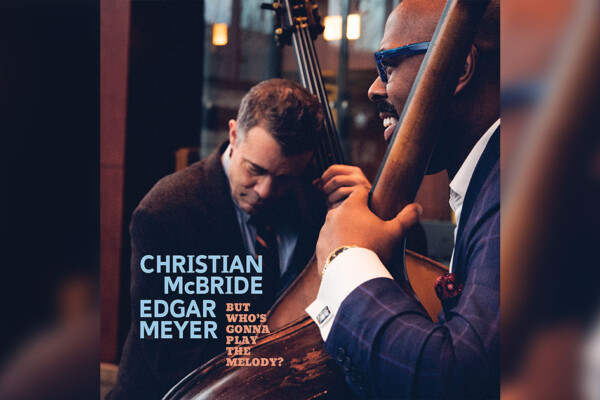
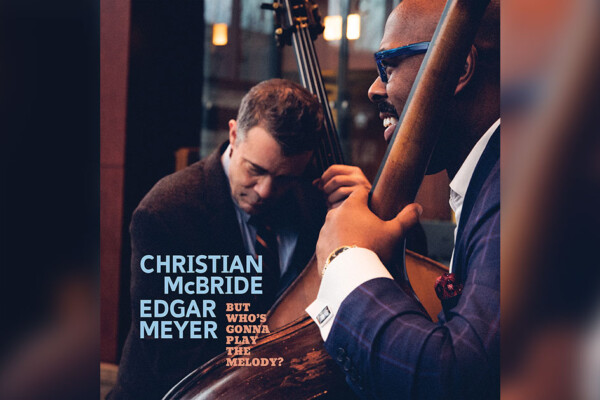
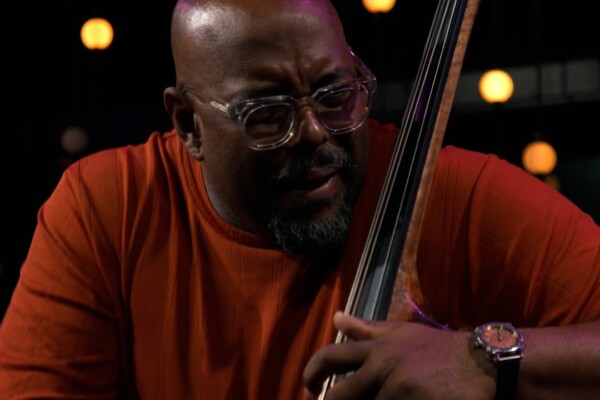
Such bass giants! This duo is meaningful in so many ways it is hard to dismiss it as simply being another “bass thing”. It is a huge “bass thing”, alright, but it goes beyond that. It’s highest order musicianship perfectly documented.